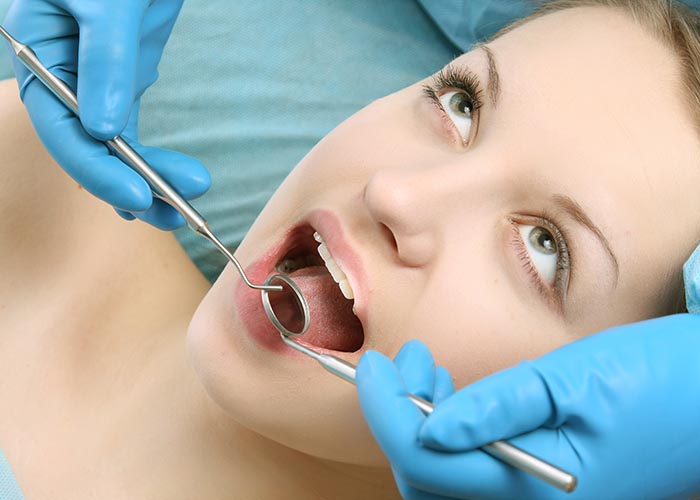Oral Cancers
The frequency and severity of oral cancers
The majority of oral cancers occur over the age of 45 and the probability of occurrence in men is 2 times higher than in women. Areas where mouth cancers occur frequently are tongue, floor of the mouth, soft palate areas close to the tongue base, lips and gums. If oral cancers are not diagnosed in the early period and treatment is not provided, they may spread and cause continuous pain, loss of function, facial and mouth deformities that cannot be treated, and even death. Regular visits to the dentist are also important for early detection of oral cancers.
What are the causes of mouth cancers?
The exact cause of oral cancer is not known exactly. However, it is known that factors such as tobacco products, alcohol and carcinogenic substances in some foods and exposure to excessive sunlight especially in the extra-oral areas (such as lips) increase the risk of cancer. Genetic predisposition is also among the risk factors for oral cancers.
Possible symptoms of oral cancers
- White or red areas in or around the mouth
- Presence of sensitive, irritated, raised or thickened areas in the mouth
- Recurrent bleeding in the mouth or throat
- Hoarseness in the voice or a feeling of an object in the throat that cannot be swallowed
- Difficulty chewing and swallowing
- Difficulty in tongue and jaw movements
- Loss of sensation, numbness in tongue or other parts of the mouth
- Swelling in the lower or upper jaw and as a result deterioration of the existing prosthesis fit
Oral cancer lesions are painless in the initial period and can therefore be neglected. As the cancer progresses and destroys healthy oral tissues, pain begins. It may be difficult for a person to notice oral cancer. It is extremely important to go to the dentist in the slightest change for early diagnosis. In addition, the habit of going to a regular dentist plays an important role in early diagnosis.
Reducing the risk of oral cancer
- Do not use tobacco products such as cigarettes, cigars, pipes, do not chew tobacco.
- If you drink alcohol, do not drink excessively.
- Oral cancer risk is 15 times higher in people who use both alcohol and tobacco products than those who do not use alcohol and tobacco products.
- Eat a diet rich in fruits and vegetables (studies suggest that this type of diet may reduce the risk of oral cancer).
- Do not neglect to go to the dentist regularly.
* Article is taken from TDB (Turkish Dental Association).

